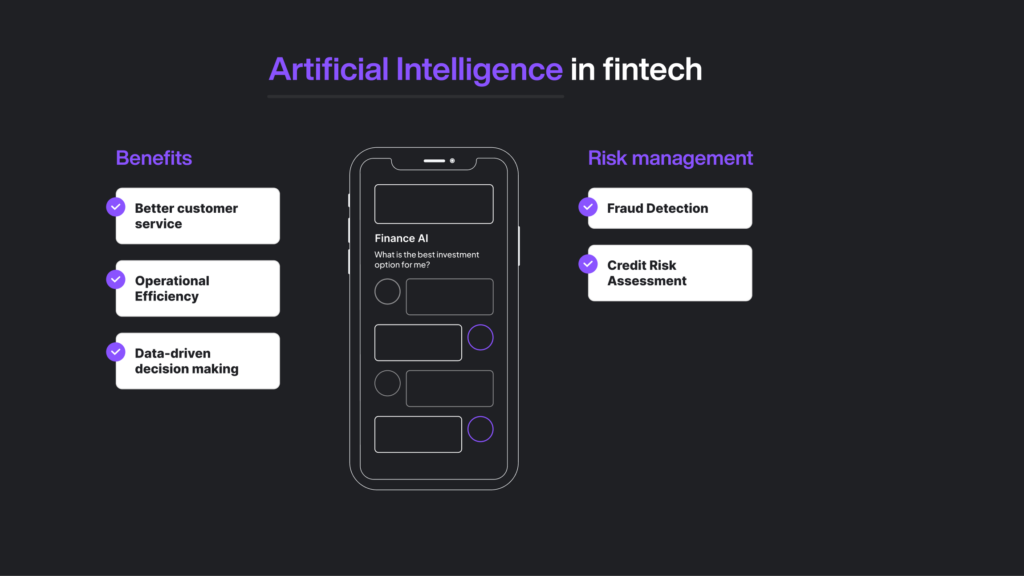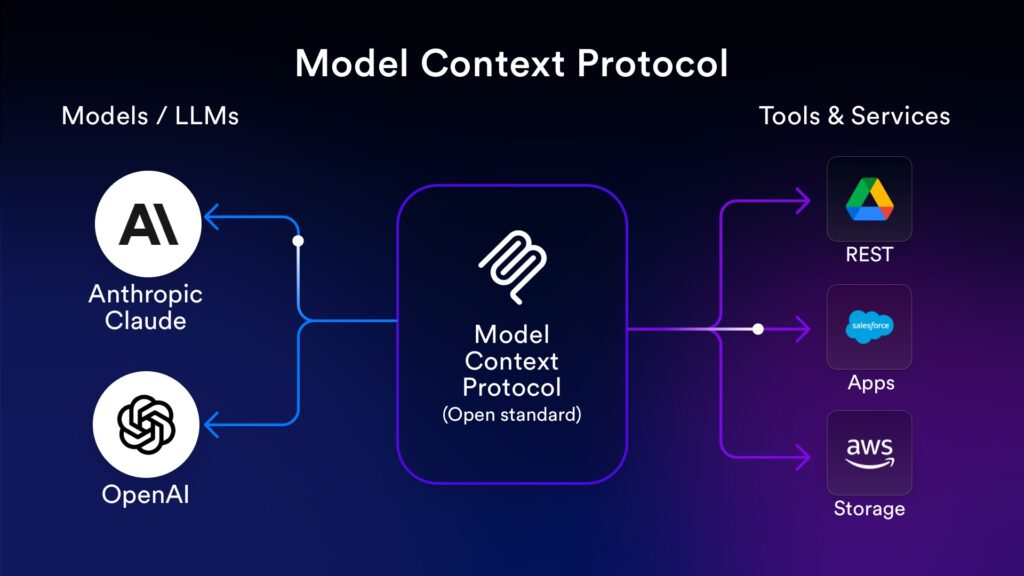Artificial Intelligence is revolutionising everyday tasks before our eyes. When was the last time you went a week without using AI? I find it challenging to recall. AI has quickly become part of our everyday lives, almost without our conscious notice. We’re in an extraordinary period of digital evolution. Lightflows value digital innovation and view AI as an essential aspect to consider. AI is used in many sectors and industries, and fintech is no exception.
What exactly are Artificial intelligence and fintech?
Artificial Intelligence (AI) is a computer system designed to mimic the human mind with data handling, learning, reasoning, and perception capabilities. AI is becoming increasingly popular and is used in a wide range of industries, including fintech.
What is fintech? Fintech refers to the financial technology industry, which includes a wide range of innovative technologies to improve the efficiency of financial services.
Integrating AI in fintech enables enhanced efficiency in data processing, accurate risk assessment, and deeper customer insights. It plays a crucial role in various areas of fintech, including the front office (customer interaction), middle office (risk management), and back office (operations and support).
AI can drive innovation and efficiency in the financial industry, benefiting financial institutions and their customers. Here are some examples of AI in fintech:
- Chatbots for customer service
- AI-powered robo-advisors for investment management
- Algorithmic trading for stock markets
- Fraud detection and prevention
- Personalised financial recommendations
In this article, we’ll delve into valuable insights when integrating AI within the financial sector, highlighting its potential to transform the financial landscape.

Benefits of Artificial Intelligence in fintech
Since the 21st century, AI in fintech has increased massively, transforming how we manage and interact with our finances. Futhermore, it’s fascinating to see how these advancements might shape our personal banking and investment experiences, making them more intuitive and tailored to our needs.
85% of fintech companies have already enhanced their financial software with AI ML technologies to provide high-quality and secure services (hqsoftwarelab.com). Why is this? Let’s delve into the benefits of AI in fintech.
Better customer service
In AI-driven financial tech, the customer experience is paramount. Financial institutions use Artificial Intelligence to deliver more tailored and efficient interactions, improving customer satisfaction.
One example of this is banks. If you use online banking, you’re probably familiar with the AI-powered chatbots that respond to customer’s queries. For instance, Santander has ‘Nina,’ the virtual assistant that uses Artificial Intelligence technologies, particularly natural language processing (NLP), to understand and respond to customer queries. They provide personalised financial management and are available 24/7 to help improve customer experience and customer engagement and contribute to cost reduction by streamlining operations.
Operational efficiency
Finding ways to boost operational efficiency is critical in our fast-paced financial world. If fintech companies use AI, they can optimise workload, reduce operational costs and gain a competitive edge in the market.
Fintech firms can utilise AI to enhance operational efficiency, with personalised loans as a prime example. At HSBC, where I’ve seen AI work its magic firsthand, the AI-driven chatbots can provide personalised loan options by analysing a large amount of data and tailoring the terms and conditions of the loan to each individual. The speed and efficiency with which AI operates in this context far surpasses human capabilities, streamlining the process significantly for routine tasks.
Risk management
Fraud detection
Unfortunately, fraud is more common than you think. The UK customers lost a combined total of £1.2 billion across all fraud types in 2023. However, financial companies can use Artificial Intelligence for robust security measures and to reduce the possibility of fraudulent activities in financial transactions. AI-powered fraud detection algorithms examine suspicious activity to identify potential fraud, which is crucial in risk mitigation strategies. In addition, this helps keep customers’ information safe, prevents fraudulent activities and improves customer trust.
Credit risk assessment
Another area where AI shows significant promise in financial institutions is credit risk assessment. If you’ve ever applied for a mortgage or secured a loan, you know how long the credit risk assessment can take. Through machine learning algorithms, firms can assess creditworthiness, credit history and risk profile by analysing vast datasets, including financial transactions and market conditions. Therefore, deploying AI in this domain can lead to more accurate and faster assessments.
Data-driven decision making
Using AI technologies to analyse big datasets can significantly improve data-driven decision-making in the finance industry. By utilising AI, financial institutions can identify patterns and trends in customer behaviour, market trends, and other critical data points. This enables them to make more accurate predictions, improve risk management, and identify new investment opportunities. These benefits help financial institutions better serve their customers and achieve their business goals.
Challenges of Artificial Intelligence in fintech
AI is transforming the financial industry, making repetitive tasks more efficient and accurate, improving customer experience, and enhancing decision-making processes. However, it does have challenges and limitations. These include issues around data integrity and ethical concerns. Let’s take a look.
Data quality and availability
In fintech companies, the quality and availability of data are essential. Artificial Intelligence systems require large volumes of data to learn and make accurate predictions. However, datasets may be incomplete, outdated, or inaccurate, leading to flawed insights and decisions. For instance, a lending AI trained on historical loan data lacking demographic diversity might make credit decisions biased against underrepresented groups.
Ethical considerations
When Artificial Intelligence is used in the financial industry, it often has access to sensitive information. The management and protection of this data is paramount, as any breach or misuse can lead to significant privacy violations and financial fraud, undermining trust in financial institutions and the technology itself. Therefore, ensuring the security and ethical handling of sensitive information becomes a critical responsibility for any AI application in the financial industry.
There’s a risk that machine learning algorithms could preserve biases, leading to unfair treatment of certain groups. Fintech firms must implement ethical AI practices to foster financial inclusion and prevent discrimination. Additionally, the lack of transparency in AI algorithms can cause a challenge. Given banks’ critical role, I understand that it might be challenging for customers to grasp how AI systems make decisions, which can lead to worries about trust and data privacy.
Future of Artificial Intelligence in fintech
Technology aims to improve our experiences, and adopting AI within the fintech industry is a significant leap forward in this endeavour. As we embrace this change, explore its potential, and work towards a future where finance and technology seamlessly blend to better people’s everyday needs.
The future of AI in Fintech looks promising as advancements continue to be made in this space. Two core advancements will predominantly drive these developments:
- Innovative Applications
- Predictive Analytics
Innovative applications
Fintech companies are using AI to change how we do transactions and services, making things like customer service more personalised. They’re using AI to offer custom financial advice and help more people access financial services.
Predictive analytics
Fintech is improving at using AI for predictive analytics, making market and customer behaviour forecasts more accurate. This means better risk and opportunity predictions, leading to more intelligent decisions. For people, it means more helpful personal finance tools. It also means faster and more effective business fraud prevention, keeping the digital finance world secure and trustworthy.
Summary
In summary, the future of finance with AI in fintech holds excellent promise as technological advancements continue to reshape the industry. Innovative applications of AI, such as chatbots for customer service, robo-advisors for investment management, and fraud detection algorithms, will continue to enhance efficiency and provide customers with seamless experiences.
Lightflows has collaborated with numerous fintech firms to help build their vision. Ready to get started? Book a chat with us.
FAQ’s
Firms use artificial intelligence to analyse vast amounts of data more efficiently than traditional methods. AI enables these firms to offer personalised financial recommendations and improve decision-making processes.
Integration of AI presents technical and regulatory challenges, including the complexity of financial markets, data privacy concerns, and the need for substantial investment in infrastructure.
Artificial intelligence may lead to new forms of financial fraud, errors in decision-making due to biased data, and concerns about transparency and accountability in automated processes.
AI can solve complex financial problems by exploiting machine learning algorithms in credit scoring, risk assessment, and fraud detection, making systems more efficient and secure.
AI plays a significant role in financial planning by powering chatbots as digital financial advisors, providing 24/7 assistance, intelligent investment strategies, and behavioural finance analysis to cater to individual client needs.
Table of contents



